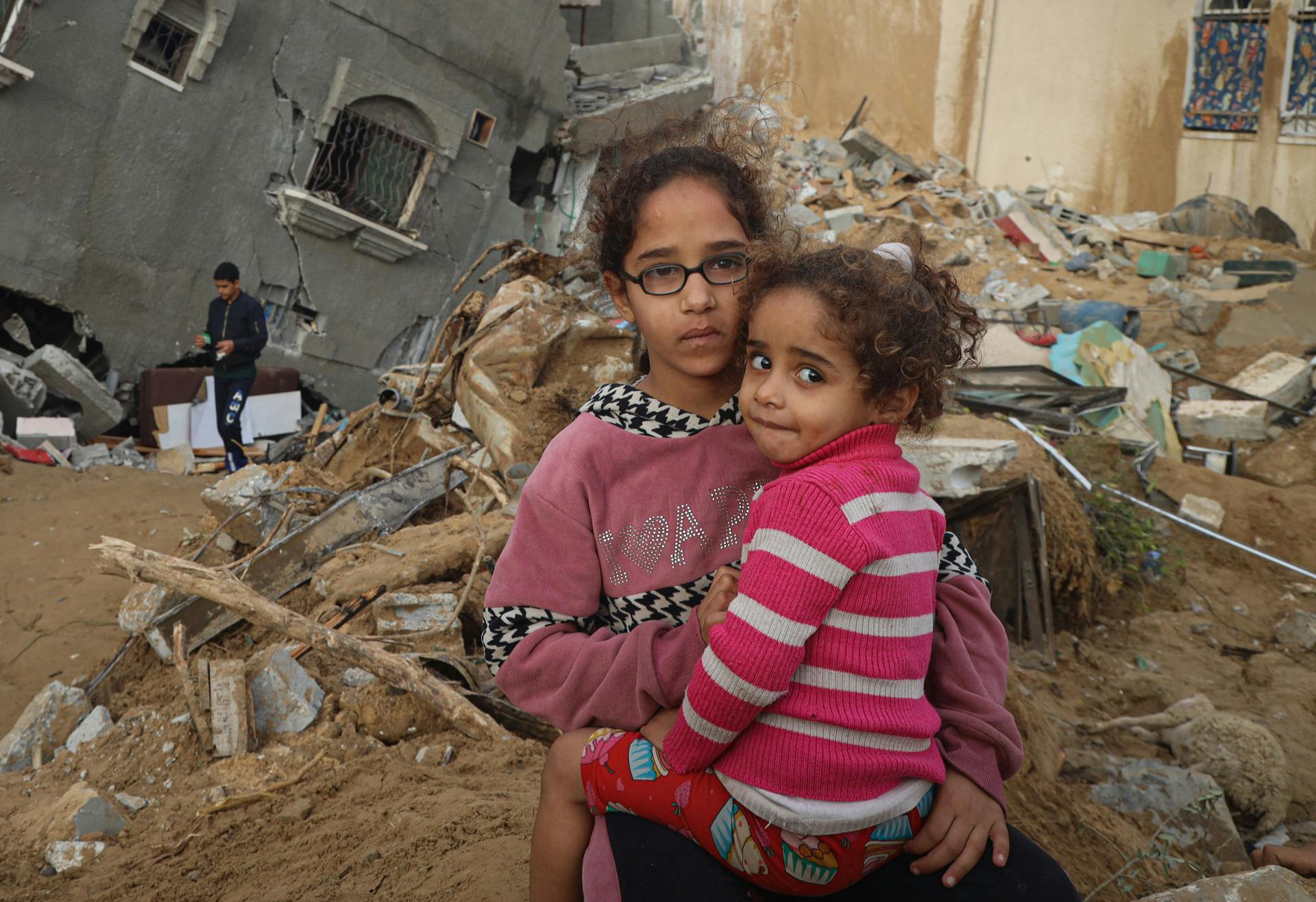
Gaza: 12 months on
Home
Stories
Gaza: 12 months on
It’s been 12 months of unbelievable trauma and grief for millions of people.
Kids caught up in the violence have been the urgent focus for thousands of UNICEF staff - both those on the frontlines and those around the world working tirelessly to support the children affected by this conflict.
At times it has felt futile because parties to the conflict have forgotten that children and civilians must be protected at all times, not just in peacetime. The killing and maiming of children is a grave violation condemned by the United Nations Security Council. Attacks on schools and hospitals are grave violations. The abduction of children – as an intentional act of violence or retaliation or to instill fear among populations – is a grave violation. The denial of humanitarian access to children is also a grave violation.
As we’ve worked round the clock to raise funds to procure and deliver aid, we’ve also continuously condemned every violation committed against children throughout this crisis. We’ve appealed to world leaders at every given opportunity. Every child, no matter where they live, must be protected from further suffering. In any circumstance, at all times, they must not come under attack. And yet, they have.
As a result, many of our donors and supporters have been asking questions about how they can reconcile these two realities. Images of children and families in desperate need will always trigger deep emotions in us as human beings. So we've answered a list of some of the most frequently asked questions, that you can read below.
We all want this conflict to end, for children to be protected and prioritized, and until a lasting ceasefire is reached we will continue to do whatever we can.
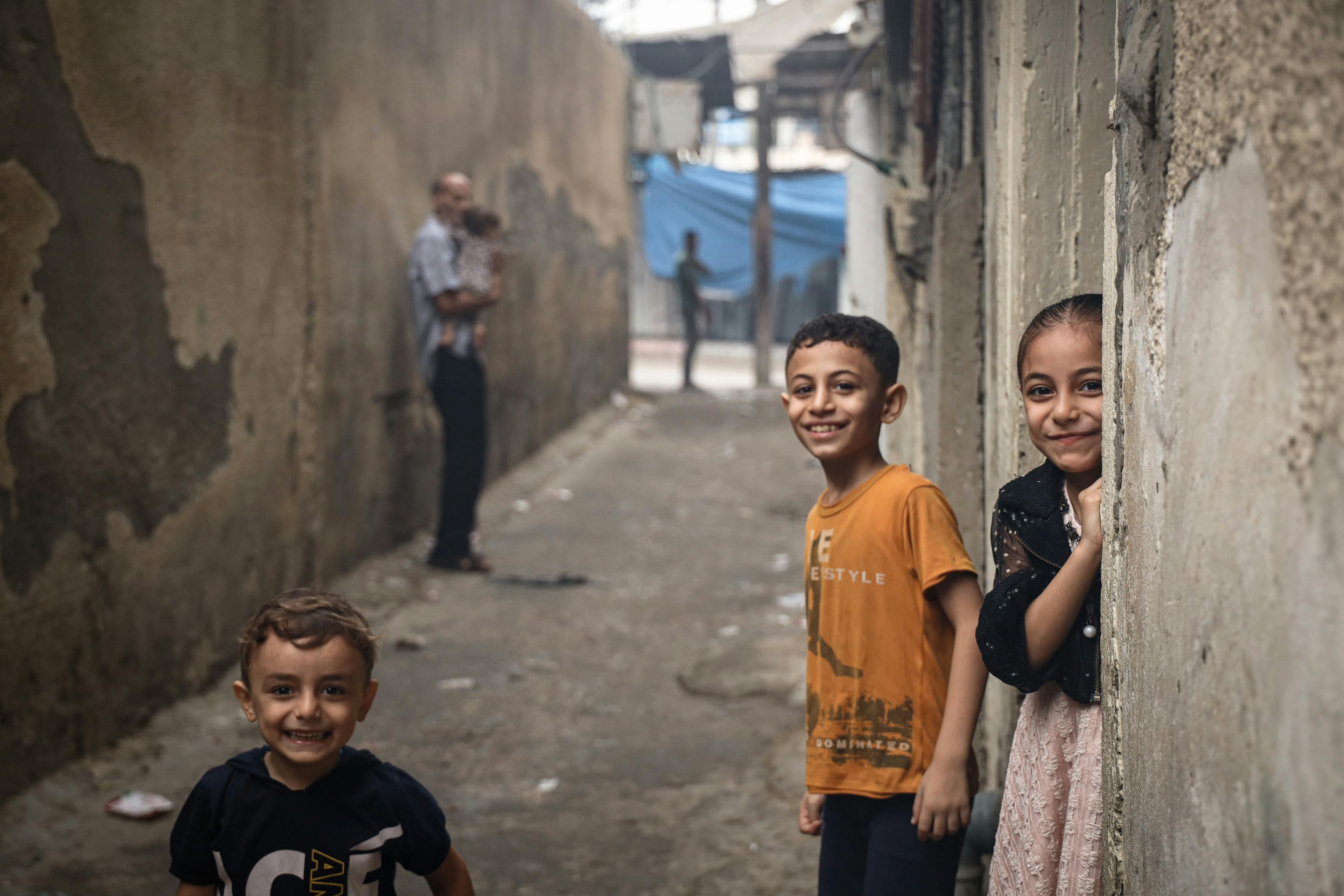
1. What is UNICEF’s humanitarian role during armed conflict?
Our mandate is to help protect and support the wellbeing of children, no matter who they are or where they live.
In Israel, where resources are readily available to meet children’s needs during an emergency, we do this by offering guidance and support to decision-makers on the ground. In Gaza, which doesn’t have these resources, we mobilize UNICEF staff and supplies. This is consistent with our approach with governments and partners around the world.
UNICEF aims to deliver critical aid to children caught in crisis, as set forth in international humanitarian and human rights law, including the 1989 Convention on the Rights of the Child. Supported by nearly every country, the convention underpins UNICEF’s work in any context, which includes armed conflicts.
This has been our mandate since 1946. We remain impartial regarding parties to any conflict and to their political ideologies, but never neutral when it comes to protecting children in need. That is our sole mission.
2. Is the aid getting where it needs to for the Children in Gaza?
There are severe limitations on the current delivery of humanitarian aid in Gaza, but UNICEF staff on the ground are working tirelessly to get as many supplies through as possible. Despite these serious obstacles of bombardments, civil disorder and limited supplies, from the start we’ve been committed to delivering as much life-saving aid as possible and expanding our programs when conditions allow.
UNICEF is committed to being on the ground before, during and after emergencies. Our work to support the children of Gaza will scale up as soon as a ceasefire enables the full extent of humanitarian support that is needed to get through. The confirmed outbreak of polio was a challenge that required additional resources and effort, including vaccines, equipment and people to be able to protect children from this horrific disease. It was a successful campaign and shows that co-operation of all parties to do what’s right for kids is possible even during conflict.
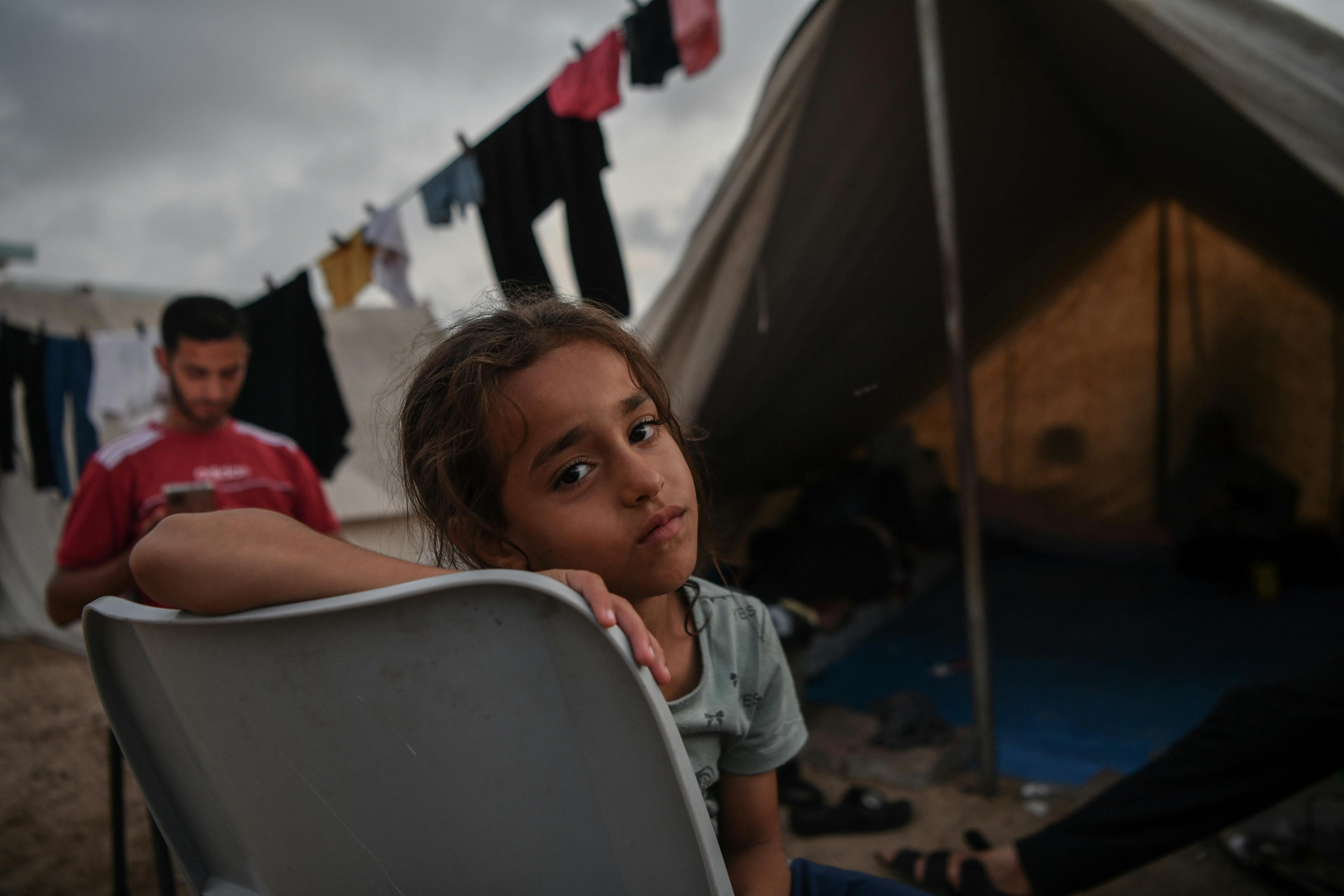
3. What measures does UNICEF have in place to prevent aid diversion?
Our primary focus is to ensure life-saving supplies reach children in need. UNICEF’s measures to safeguard supplies include; field monitoring conducted by our own staff and third-party contractors, real-time digital monitoring, reporting from civil society partners on the ground, and community feedback systems that allow families to contact us directly.
In Gaza, active conflict is impacting the efficiency of these measures. Roads, warehouses, and telecommunication infrastructure have been destroyed, curbing our ability to coordinate with partners. Aid workers themselves have been displaced, injured and killed. And network blackouts make it difficult for families to tell us what they urgently need for their children – or to receive information on how to access it.
Currently, UNICEF is reporting on the delivery of relief items up to when they get to warehouses and other distribution points in Gaza. We’re also monitoring all fuel and medical supplies en-route to hospitals. And when damage or shortages are reported, UNICEF reclaims losses through insurance to keep shipments moving.
The challenges of aid delivery in Gaza are many. The reasons to persist are more. This means we are constantly balancing the risk of aid delivery with urgent needs, and we do this in coordination with our partners. An immediate humanitarian ceasefire would allow us to strengthen monitoring and reporting mechanisms and get more relief into children’s hands.
4. What is UNICEF’s response to reports that aid is not reaching all those it intends to?
UNICEF aid is not reaching all the children who urgently need it. Getting humanitarian supplies into and through Gaza is an intensive effort, subjected to extensive constraints. UNICEF staff on the ground are doing everything that they can – but the constraints are real.
Trucks carrying relief must undergo multiple layers of inspection before entering the Strip, with cargo increasingly rejected on unpredictable grounds. Items needed to repair and run water plants, like plastic pipes, have been banned with no clear justification. Critical medical supplies are similarly restricted.
Shortages of fuel and trucks only exacerbate complications at checkpoints: Many United Nations vehicles were destroyed or abandoned following our forced evacuation from northern Gaza. Of the 500 or so truckloads of goods transported to the Strip each day prior to 7 October, roughly a quarter are getting through now.
Drivers who do gain access must navigate impossible conditions. Rafah is a crossing point built for pedestrians, not trucks. Convoys are met with desperate, starving communities on the streets. Roads have been destroyed, routes strewn with unexploded weapons.
Infrastructure for storing and transporting aid has also been damaged. Warehouses are unusable. Commercial supply lines no longer exist. And communication blackouts continue to obstruct the coordination of delivery: UNICEF frequently loses contact with our teams on the ground. Families in Gaza have no means of learning where to access aid. Many critical items cannot reach their intended distribution site.
Through it all, constant bombardment and relocation orders has choked some 85% of the population into uninhabitable slivers of land. UN shelters have long exceeded their capacity, and humanitarians have little record of where families have fled or sought refuge. There is no such thing as safety in Gaza. Convoys are coming under fire. Aid workers themselves have been displaced and killed, many alongside their families.
In response to reports that humanitarian aid is not reaching all those we intend it to, UNICEF affirms this. Delivery delays are catastrophic for children. We’re providing medical kits, nutrition supplements, water supplies, tents, blankets, clothing and more. It’s not enough. UNICEF reiterates our call for a ceasefire now.
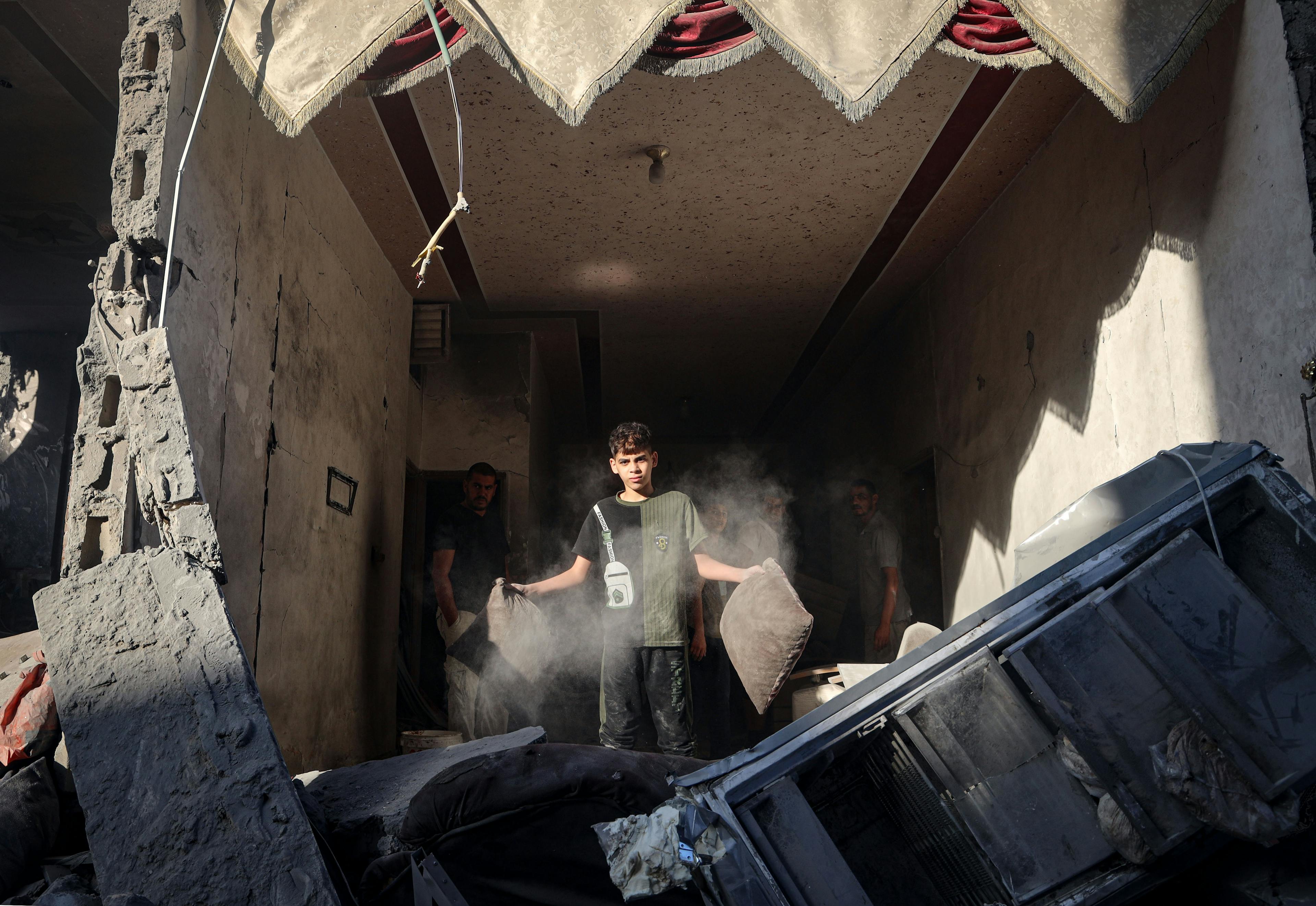
5. All we see is devastation and carnage, what has UNICEF achieved on the ground?
- UNICEF is the sole provider of vaccines for children and women in the Gaza Strip and helps to manage the critical central cold chain which keeps vaccines effective. Last month UNICEF delivered 1.6 million polio vaccines to the area and reached at least 600,000 children in two rounds of vaccination campaigns.
- In the first six months of 2024, UNICEF provided 3.3 million liters of fuel, which ran wells and desalination plants to provide lifesaving water for 800,000 children. UNICEF has distributed more than 1.5million kits of critical sanitation supplies like collapsible water containers, sanitary pads and hygiene kits.
- UNICEF has scaled up its healthcare response and now supports ten primary healthcare facilities, 65 medical shelter points and four outreach teams. We have supported the installation of a new filed hospital in Rafah, which we estimate will serve around 100,000 people, and provided 8 new incubators for the Nasser Medical Complex.
- UNICEF is responding to high risk of famine across Gaza through 163 treatment sites, which are screening children for malnutrition and providing critical supplies like high energy biscuits, folate for pregnant women and other supplements.
- Children in Gaza are terrified, and with widespread experiences of severe trauma, we estimate that every single child needs some form of mental health support. In the first six months of this year, UNICEF and partners provided 62,000 children and 32,400 caregivers with community-based mental health services. UNICEF also distributed 105,500 identity bracelets to prevent children from being separated from their families.
- UNICEF is continuing to advocate for all parties to the conflict to adhere to their obligations under international humanitarian law. UNICEF reiterates the call for Israel ‘to fulfil its legal obligation, under international humanitarian and human rights law, to provide food and medical supplies and facilitate aid operations, and on the world’s leaders to prevent an even worse catastrophe from happening.’
6. What about the kids in Israel affected by this war?
In high-income countries such as Israel, Governments generally have adequate capacity to respond to emergencies. Upon request from the Government, UNICEF can extend support, such as mental health and psychosocial support for children.
In over 30 countries where UNICEF does not perform programmatic activities, like in Israel, National Committees for UNICEF serve as our dedicated voice, helping to raise funds for UNICEF’s work worldwide, to promote children’s rights, and to lift visibility for children threatened by poverty, disasters, armed conflict, abuse and exploitation. The Israeli Fund for UNICEF was established in 2009 to raise awareness of children’s rights in Israel and fundraise for UNICEF’s life-saving work across the world.
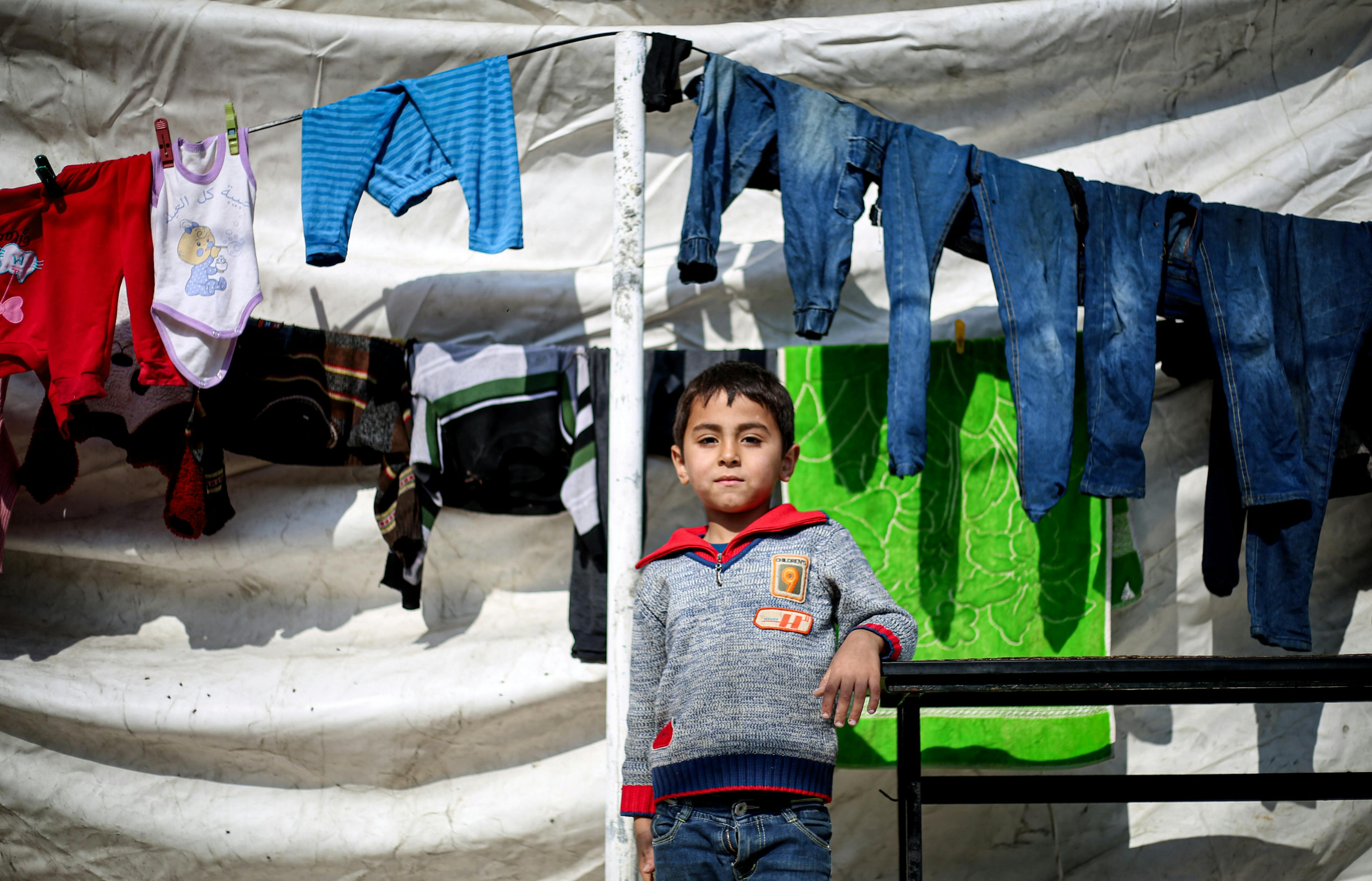
7. Why does UNICEF refer to “parties to conflict” without calling them by name?
UNICEF’s mandate in any conflict is to help protect children’s rights and alleviate their suffering. This means calling on those involved in fighting to abide by their obligations under international law. It also means working to reach those children with life-saving aid, no matter who holds power where they live.
As a humanitarian agency, UNICEF must ensure aid workers can access children on every side of violence, while minimizing security concerns for on-the-ground operations. Protecting humanitarian access requires open lines of communication with all involved in fighting.
In complex and dangerous environments, public criticism of any party to conflict can risk cutting UNICEF’s lines of communication with those parties. More urgently, it can threaten the safety and security of children and aid workers. As a matter of principle, we prioritize the services our humanitarian staff provide to children, as well as the safety of those staff on the ground.
Any engagement with armed forces or armed groups – which is needed to carry out humanitarian operations and therefore the need for parties to comply with their responsibilities to protect children – is initiated in accordance with humanitarian guidelines for civil-military coordination.
8. Why aren’t you doing more to stop the parties to the conflict?
UNICEF does not have the mandate to investigate violations of international law, nor to make legal determinations about those responsible for violations.
In line with our Core Commitments for Children, however, we collect reports of severe violations against children in conflict-affected countries. We do this in coordination with other UN agencies to advance advocacy efforts to end and prevent violations against children, and to inform emergency programming.
When we do speak out publicly, we do so in line with humanitarian principles. Our aim is to focus the world’s attention not on the causes of conflict, but on the consequences for children. The only side we take in war is theirs.
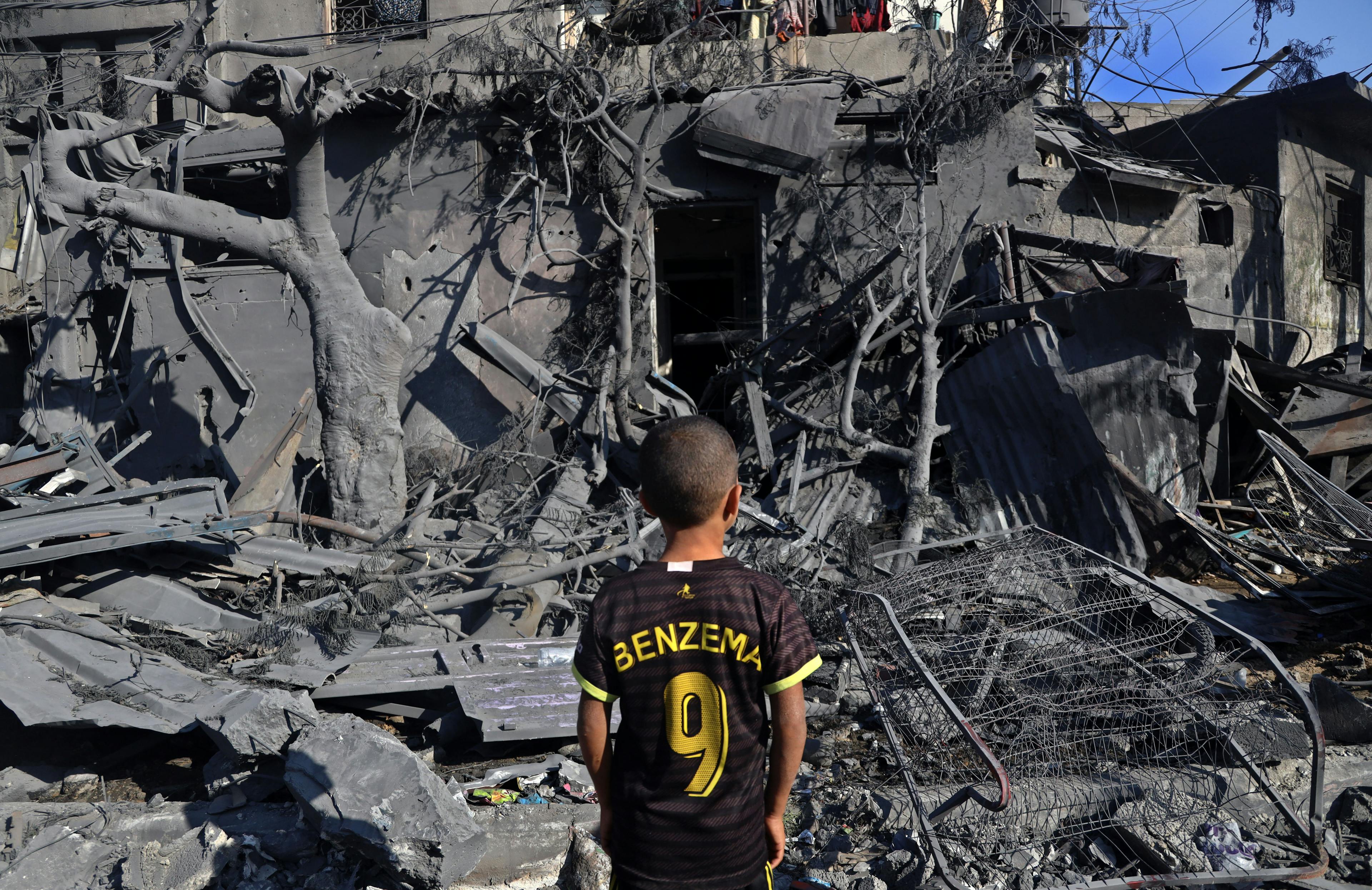
9. How do UNICEF and UNWRA work together in Gaza?
Everywhere we operate, UNICEF partners with civil society organizations and other aid agencies to help deliver more relief to more children. In Gaza, we work with UNWRA – the UN agency responsible for providing vital assistance to Palestine refugees in the State of Palestine, Jordan, Lebanon and Syria – to expand our reach.
UNICEF has long partnered with UNRWA to ensure children are prioritized across humanitarian operations. Our work together covers critical services that help protect children from disease, malnutrition and poverty, plus programmes for education and health care.
In Gaza, UNICEF is coordinating with UNWRA to provide safe drinking water to displaced families, treatment for severely malnourished children, medical supplies and vaccines for children in hospitals and shelters, and other life-saving items. We also partner on logistics for aid distribution, including the delivery of fuel needed to power water plants and hospitals.
Among our global workforce, UNICEF’s staff in Gaza comprise a small team with immense responsibility. Facing insurmountable challenges and risks, they coordinate with UNICEF colleagues worldwide – from warehouse operators in Copenhagen, to programme managers in Amman – to keep aid flowing into a war zone. We cannot get our supplies to the hundreds of thousands of children in need without the resources, infrastructure and expertise of our UN partners and NGOs on the ground.
Any loss to UNWRA is a loss to the entire humanitarian response in Gaza.
10. What is UNICEF’s humanitarian role within the wider United Nations system?
The United Nations was founded in the aftermath of World War II to bolster international peace and security and promote fundamental human rights. By mandate from the United Nations General Assembly, UNICEF works to protect the rights of children, in times of peace or crisis.
Our duty to protect underlies all others during armed conflict: UNICEF carries out emergency relief efforts, in coordination with United Nations partners and other humanitarian actors, to address children’s life-saving needs and help alleviate suffering. While this action reinforces that of other UN bodies – including those fulfilling mandates in peace, security and the rule of law – its central purpose remains the delivery of protective care.
UNICEF stands with the United Nations Secretary-General, and our entire UN family, in support of all efforts to end conflict. On every side of violence, and in every way, it’s children who suffer first and foremost.
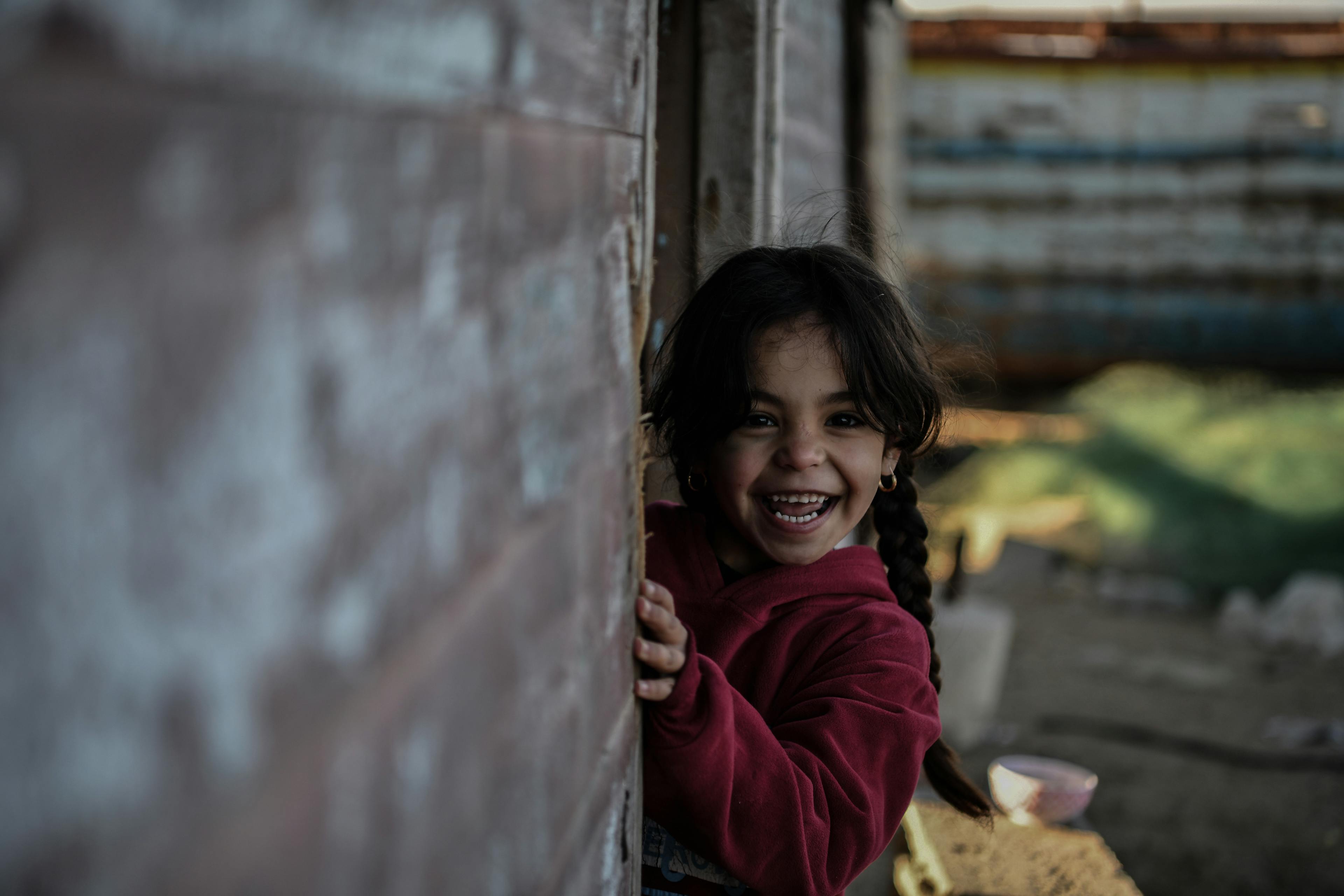
We grieve with everyone during this time and for every life lost in this crisis. UNICEF appeals for world leaders to abide by their obligations under international humanitarian and human rights law to protect children suffering through this unprecedented catastrophe. See all our calls for action here.
We demand an immediate and lasting ceasefire and the release of all remaining hostages-both alive and not. Most of all we call for peace, safety and security for all children, throughout Israel, Palestine and the broader MENA region.
